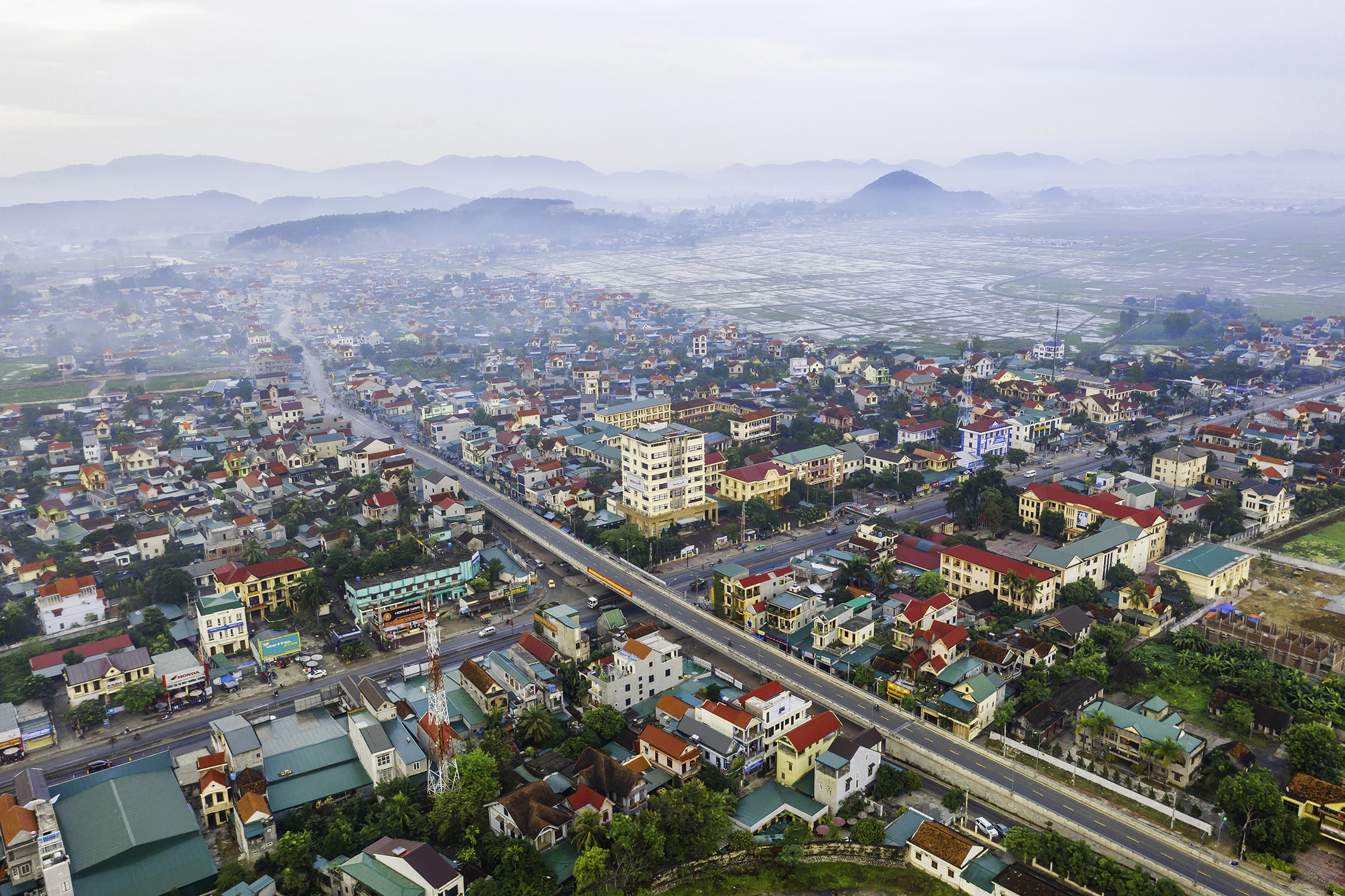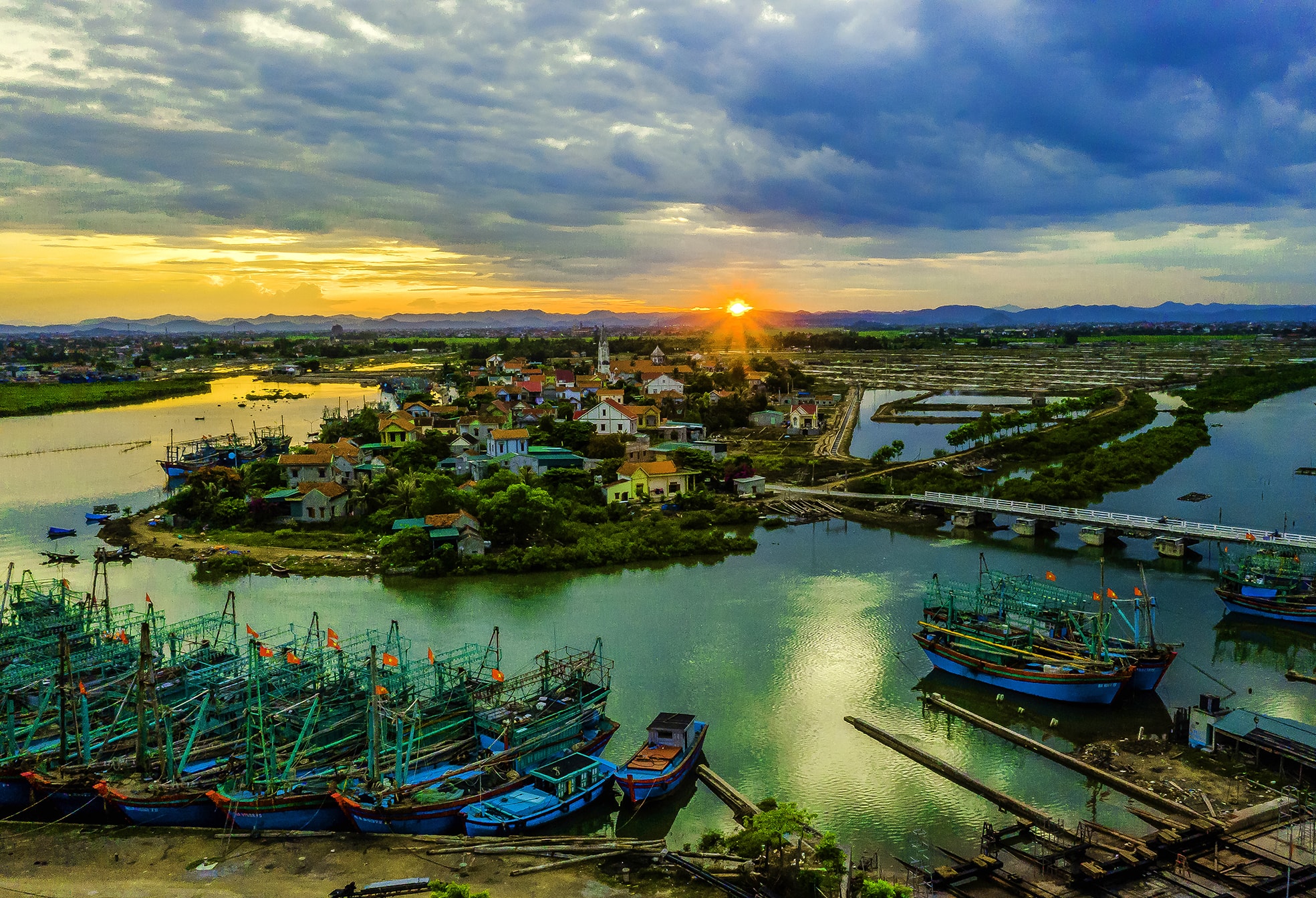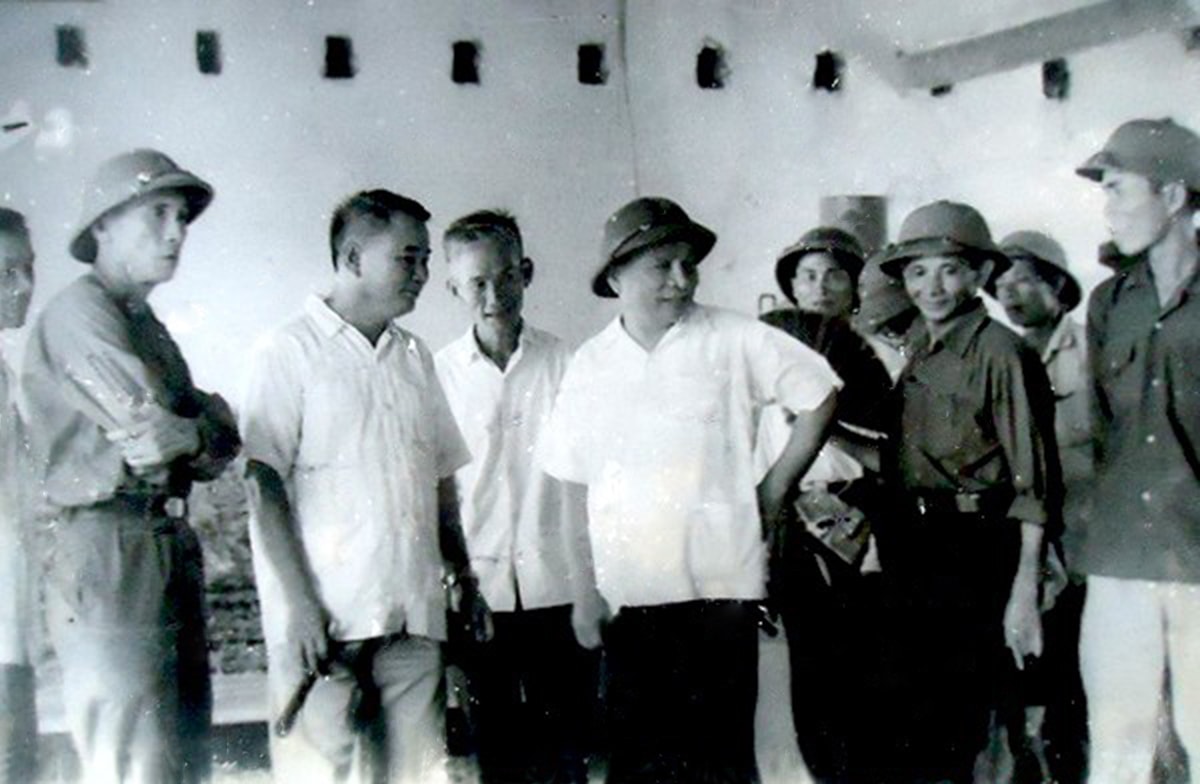Ngu Bau, Giat Bridge, Thai River
(Baonghean.vn) - The Giat River originates from the foot of the Southeast of the Mong Ga mountain range, a mountain range that is bordered by the three districts of Dien Chau, Yen Thanh and Quynh Luu. To the Northeast of that place, mountains and land create a depression, called Bau Dot. From there, a number of streams and streams converge to form the Giat River. The river flows northeast to the sea. Ancient books call it the Thai source, so the residents at the end of the stream are called, in the local language, Ke Thoi. And over many generations, the people living in the basin of this river have made their land famous.
During the medieval period, another clan came here to live, and its ancestor had the surname Ho. Tran Trong Kim wrote in the book "Brief History of Vietnam" that: Ho Quy Ly's lineage came from Zhejiang, China, his ancestor was Ho Hung Dat, who came to our country during the Ngu Quy period (10th century), and lived in Bau Dot, Quynh Luu district.
From that sense of origin, in the early 10th century, after replacing the Tran dynasty, Ho Quy Ly sent his son Ho Han Thuong to Bau Dot to build a temple for his clan. The foundation still has traces today. The northeast of Mong Ga mountain range was also an early bustling residential area. Flowing to the East, the water veins and streams from Bau Dot gathered, finding a way to the sea. The land supported people's feet and the residents here discovered ways to overcome obstacles to move forward.
 |
| Cau Giat Town. Photo: Nhat Thanh |
Going back in time, we know that when the North-South highway opened by our ancestors was formed, a bridge was built on the water stream, which was also the way to the East, called Giat Bridge. With the bridge, more people came and went, stopped, and gathered to become places for exchange and trade, even though the shops were still very simple. Gradually,a market was formed: Giat Market. To the south of the bridge and market, there are pagodas and temples. The land of Ngoa Truong and Nhan Huong is green all year round with potatoes, rice, and mulberries. In the 14th century, Thuan Nghia Catholic parish emerged, on the right side of the North-South highway.
As for the part facing the sea, on both sides of the Thai River, the hamlets and villages are becoming more and more dense, increasing the urban strength of Cau Giat town. During the resistance war against the French (1946-1954), the place name "Giat" was in a song, on par with Cau Bo (Thanh Hoa), Ba Don (Quang Binh). Now, in the North of Quynh district, Hoang Mai area has become a town. The foot-soaking rice fields and pine forests reflect on the fresh water flowing from Vuc Mau lake. That canal was created by the new damming and dredging during the time when Mr. Nguyen Huu Doi was the Secretary of the District Party Committee. It adds a "Pink" color to the town.poet Nguyen DuImagine when the author of "The Tale of Kieu" passed here in the early 19th century.
 |
| Small hamlet by the river. Photo: Nhat Thanh |
Back to the Thai River. When it was about to pass through the Giat market area and flow into the sea, the river created on its left bank a land for bamboo and wood traders to collect goods, so that place was called Hang Be village, now part of Quynh Hong commune. Also from ancient times, a pagoda was built, making the scenery here more poetic. When he was the Hiep Tran of Nghe An, Hoang Giap Bui Huy Bich visited, leaving behind a poem whose first two lines were translated by Do Ngoc Toai as:
"The citadel is not in the middle of the field,
The official road is still the same as the farmer's path.
From the land of Hang Be, with those people who were originally “farmers”, later, a clan there gave birth to a man, with the common name Nguyen Huu Doi (1927-1998). He had the ambition to “Change the sky, change the land, and rearrange the country”!
Most memorable was the time he was elected Chairman and then Secretary of the Party Executive Committee of Quynh Luu district and a member of the Standing Committee of Nghe - Tinh Provincial Party Committee.
 |
| Mr. Nguyen Huu Doi (middle) - former Secretary of Quynh Luu District Party Committee during a field trip. Photo courtesy |
With his way of doing things, journalist Nguyen Sy Dai wrote in Nhan Dan newspaper (issued on July 4, 2004) the article: "Returning to Quynh Luu to find Mr. Doi's figure". "Mr. Doi" transformed into a part of the character "Lao Khung" in the short story "Phien Cho Giat" by writer Nguyen Minh Chau. Recently, Ho Ngoc Quang wrote in Nghe An newspaper (early 2019) the article "The fire named Nguyen Huu Doi”...
As the old books teach: "No one is perfect". When he was alive, Mr. Doi also once mentioned the saying: "The times create heroes". What we learn is: In life, we must work hard and dare to sacrifice ourselves for a noble cause./.
